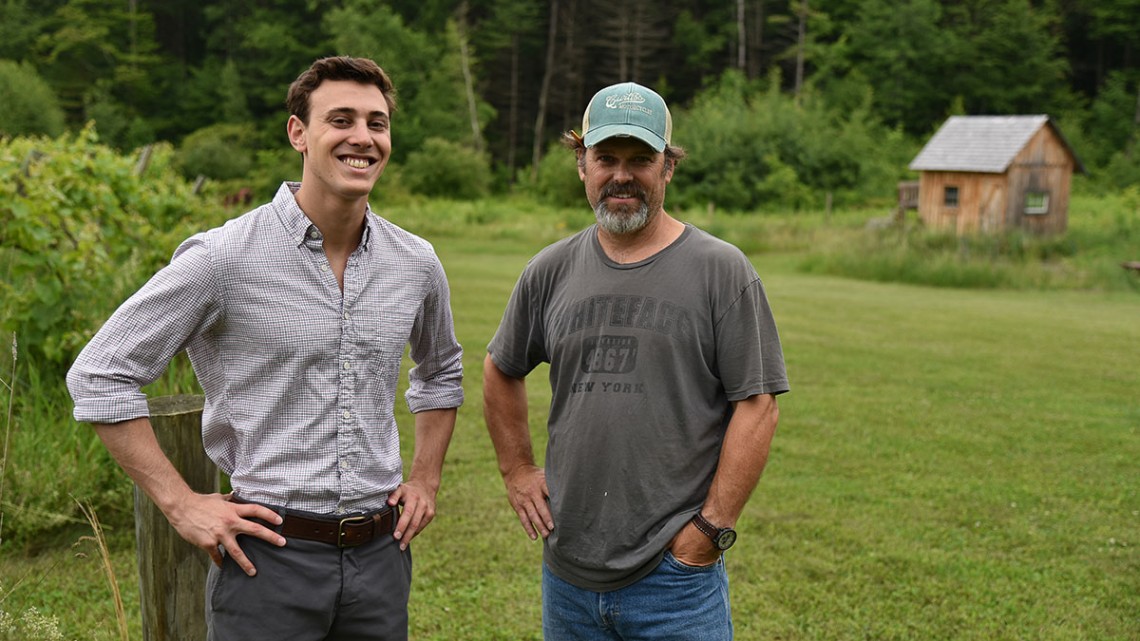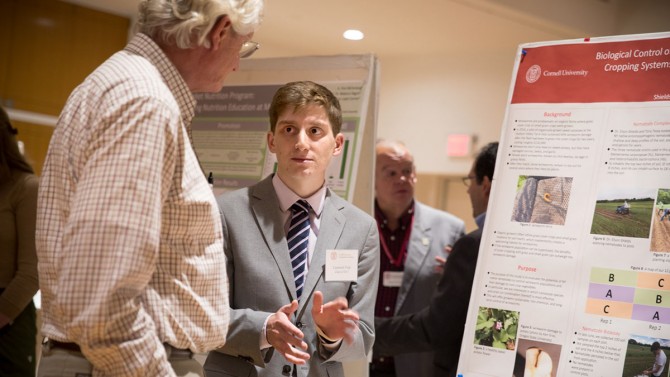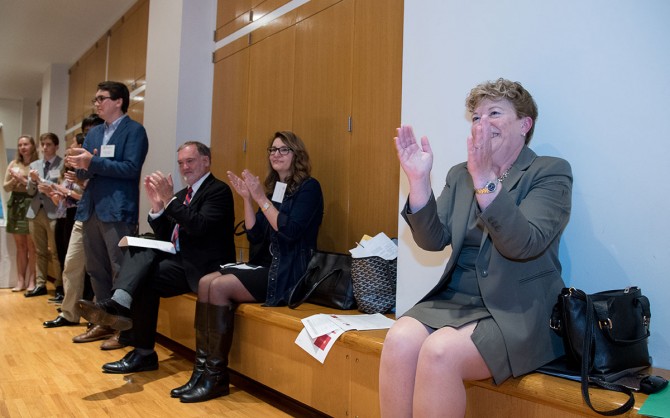
Working on projects ranging from winery establishment and expansion in New York’s north country to enhancing children’s play and parents’ knowledge in Suffolk County, Long Island, the interns learned how applied research from Cornell, the state’s land-grant institution, benefits citizens across New York state. Sixteen of the students are in the College of Agriculture and Life Sciences (CALS) and 10 are from the College of Human Ecology (CHE).
“This program is a wonderful representation of the powerful and effective collaboration between CCE, CALS, CHE and the Office of Engagement Initiatives,” CCE director Chris Watkins said. “Our internships are unique in that students work on projects proposed by faculty and staff from CALS and CHE and are hosted by extension educators at local extension offices in counties and boroughs all over New York state.”
Kathryn J. Boor ’80, the Ronald P. Lynch Dean of CALS, said: “Pairing the university’s research expertise with CCE’s statewide presence through this program facilitates significant and far-reaching impact in areas as diverse as production agriculture, nutrition and health, youth and families, economic and community development and sustainable natural resources. The internships also have a tremendous and life-changing impact on our students.”
Ryan Graff ’20, a CALS food science major, spent his summer in Plattsburgh, New York, working in the CCE Clinton County office to provide cost-benefit analysis for prospective winery and vineyard owners in northern New York’s burgeoning cold-hardy grape industry.
“I wanted to create an interactive spreadsheet that would help develop effective strategies for establishing future wineries as well as expand the existing ones in that area,” says Graff. His project was overseen by Miguel Gómez, associate professor at the Dyson School of Applied Economics and Management, and supervised in the field by Lindsey Pashow, ag business development and marketing specialist for CCE’s Harvest New York economic development team. “So not only did I have an opportunity to explore my own interests, I was also creating something that hopefully will benefit the community I was working in,” Graff said.
Cornell Vice Provost Judy Appleton, who leads the university’s public-engagement mission, said projects like Graff’s demonstrate the impact that can only be achieved with reciprocity. “The CCE educators share their knowledge from the field with students and faculty, to our benefit,” Appleton said. “Meanwhile, students share their learning with communities in ways that are beneficial to them.”
In interviewing 20 or so winery and vineyard owners to collect data for his economic tool, Graff said the conversations with people with diverse needs and perspectives made his internship experience unique. “Learning how to connect and relate at that level isn’t something you get in a classroom setting and it helped me realize what I’m capable of communication-wise,” he said. “It also reaffirmed that what I’m learning through CALS is applicable in the real world and prompted me to re-evaluate the types of classes I’ll take going forward.”
Said Alan Mathios, the Rebecca Q. and James C. Morgan Dean of CHE: “As both an administrator and a faculty member, I can attest to the value and uniqueness of the CCE intern program. The program builds on two key strengths we have here at Cornell – our amazing undergraduate students, and our mission as a land grant institution – bringing the two together to enhance not only the student experience, but also the impact Cornell is able to make across New York state.”
This article is written by R.J. Anderson and was originally published in the Cornell Chronicle on R.J. Anderson is a writer/communications specialist with Cornell Cooperative Extension.

